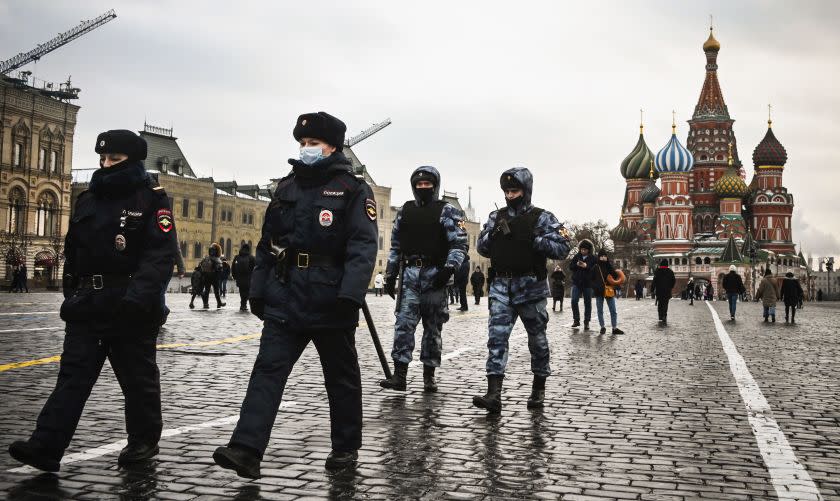U.S., European Union to sanction Russia for poisoning Putin foe Alexei Navalny

- Oops!Something went wrong.Please try again later.
- Oops!Something went wrong.Please try again later.
The United States and the European Union are jointly imposing sanctions to punish Russia for the poisoning of Alexei Navalny, an opposition leader who was recently jailed, according to senior Biden administration officials.
Navalny was poisoned with a nerve agent Aug. 20, then spent months recovering in Germany. When he returned to Russia on Jan. 17, he was detained and sentenced to prison on what U.S. officials described as spurious charges.
"We're sending a clear signal to Russia," said one of the officials, who requested anonymity. "There are consequences for the use of chemical weapons."
Administration officials also warned that they believe Russia is "moving toward authoritarianism" under President Vladimir Putin.
Jen Psaki, the White House press secretary, told reporters that U.S. intelligence officials have assessed "with high confidence" that Russian government operatives poisoned Navalny. Moscow has denied any role.
The sanctions target seven senior Russian officials, including Alexander Bortnikov, the head of the country's main intelligence agency, the FSB. Other officials include two deputy ministers of defense and the head of the federal prison system.
Former President Trump had previously declined to join European countries in punishing Russia for its targeting of Navalny. An official said Biden's approach would be "very different than what you saw in the previous administration."
The sanctions for Navalny's poisoning are the first of several actions that the Biden administration is considering. Officials are also debating how to respond to the SolarWinds cyberattack, election interference and Russian bounties for the death of American soldiers in Afghanistan.
"We expect this to be a challenging relationship," the official said. "We're prepared for it to be a challenging relationship."
This story originally appeared in Los Angeles Times.

